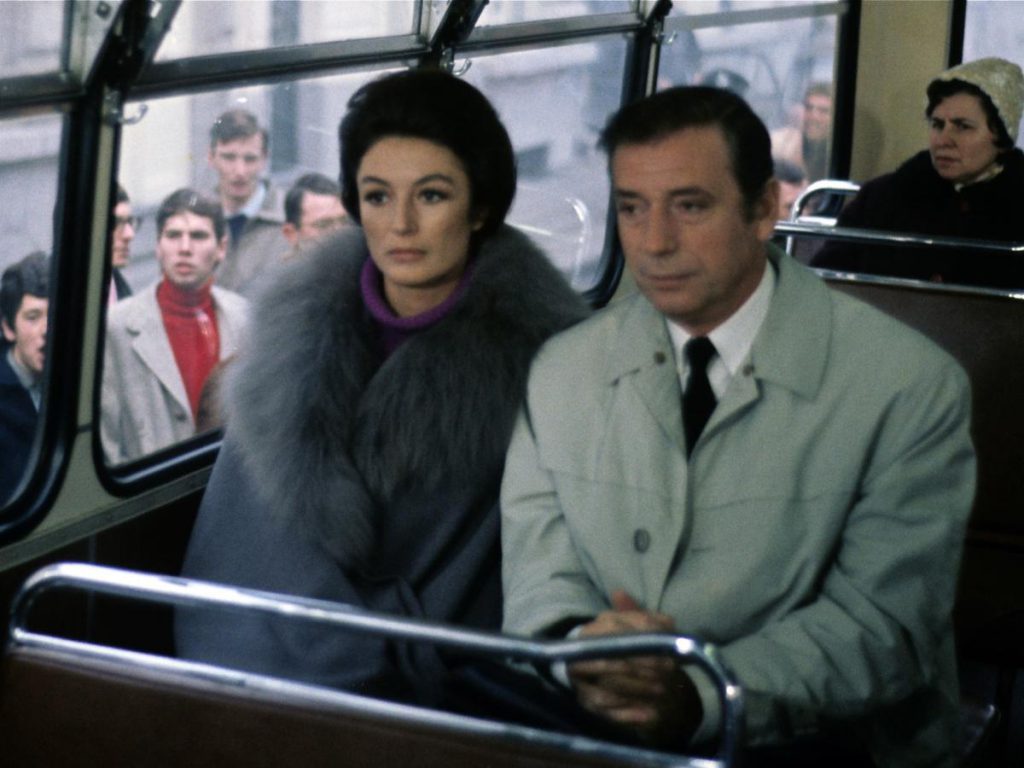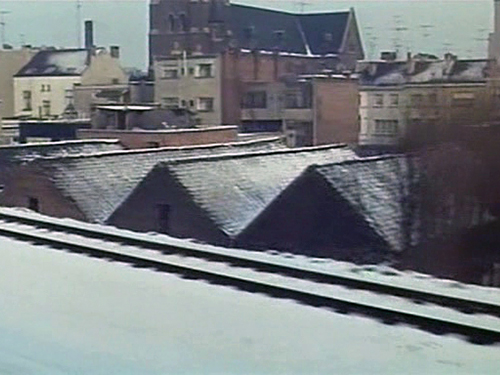On 1 December 2022, Sabzian pays tribute to André Delvaux, who died unexpectedly 20 years ago. Delvaux, who according to Luc Dardenne was “the greatest and perhaps the last Belgian filmmaker”, is best known to the general public for the Belgian and international film classic De man die zijn haar kort liet knippen (1966). As part of of Seuls, series of film programs dedicated to singular moments in the history of Belgian cinema, Sabzian is organizing together with KASKcinema the first screening of the restoration of André Delvaux’s second feature Un soir, un train, which like De man die zijn haar kort liet knippen, is based on a novel by Flemish author André Daisne. Delvaux’s adaptation remains true not only to the original storyline but also to Daisne’s magical-realist style, which he cinematographically transposes to the screen. However, in Delvaux’s film, the story unfolds against the backdrop of the linguistic conflict in Belgium during the 1960s, which adds a political dimension that is absent in the novel. Matthias, a bilingual linguistics professor who teaches at a Flemish university, falls asleep on the train after an argument with his girlfriend. When he wakes up, he finds himself in a strange, dreamlike world where people speak and behave in an uncanny way. Through the character of Matthias, Un soir, un train explores the communicability of meaning and the in-betweenness inherent to Belgian identity.
André Delvaux is counted among the most important filmmakers in the history of Belgian cinema. Although he started making films relatively late and without a formal education, Delvaux managed to create a rich oeuvre that paved the way for a whole generation of Belgian filmmakers. Admired by filmmakers such as Jean-Luc Godard, Chris Marker and Alain Resnais, his films put Belgian cinema on the map internationally. Aside from his work as a fiction and documentary filmmaker, Delvaux was actively involved in film education. In 1962, he founded the theatre and film school INSAS in Brussels together with Raymond Ravar, where he trained notable Belgian filmmakers such as Boris Lehman, Michel Khleifi, Jean-Jacques Andrien and Jaco Van Dormael among others.

Seuls. Singular Moments in Belgian Film History is a series of film programs accompanied by the publication of unique texts by Belgian filmmakers and writers on Sabzian’s website. It is often said that cinephiles don’t know or are rarely appreciative of their own national cinema. Film critic Adrian Martin “observe[s] a very intriguing dimension of cinephile thought: namely, the usually feisty way it negotiates a fraught relation with the cinephile’s own national cinema. Indeed, I sometimes think I can spot a cinephile by the intensity of their hatred for their national cinema.” With this series of film evenings, Sabzian aims to chart the wayward landscape of Belgian cinema with images, sounds and words, by means of an affectionate countermovement.


